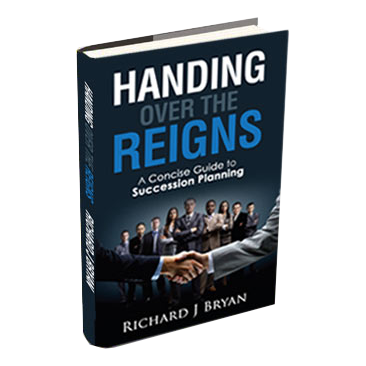As a succession planning keynote speaker, I meet a lot of family business and closely held company owners—and I find that a surprising number of them are operating without any kind of advisory board. Of course, most of them are attending my talks in the context of paving the way for a smooth succession when the time comes.
But as I counsel everyone to start their succession plan long before they think they need one, I’d also counsel business leaders that it’s never the wrong time to start a board! Leaders will weather multiple seasons of evolution during their tenure, and a board can be incredibly helpful in navigating ALL of them. Here are a few things I’ve learned, both in my own leadership history and my travels on the succession planning keynote speaker circuit.
It’s Okay to Start Small.
While the ultimate goal should be to create a cohesive mix of family members and independent advisors, starting small with a family-only board is often the most viable first step, particularly companies in their first or second generation. Not only is this a good way to keep family members in regular communication about the state of the union, it’s also an excellent way to groom younger family members for future success within the company.
FAMILY BOARD MEMBER MUST-HAVES
Strategic Thinking Abilities
Sensitivity to Family Dynamics
Understanding of the Industry
Outside Leadership Experience
Demonstrable Financial Acumen
Communication + Diplomacy Skills
History of Business + Personal Integrity
Grow Your Business, Grow Your Board.
As the business grows through its second and toward its third generation, the influence of independent advisors will begin to become more important. By this point, your enterprise is established—as is “how it’s done around here.” When you start bringing in outside voices at this stage, these outside perspectives can serve as a vital system of checks and balances.
A balanced advisory board can help your family business by creating accountability, acting as a sounding board for important decisions, helping to build shareholder relationships, adding areas of expertise not represented in the immediate family and of course, providing impartial guidance during transitional or difficult periods, like a business succession.
As someone who is now involved as an advisor to several other companies’ boards, I can appreciate the value of being able to see things from the outside looking in. The perspectives an outside advisor can offer, as someone who does not get involved in the day-to-day operations (and also has no emotional ties to the people who work there) is one of the greatest assets for any board advisor.
If you can combine this with relevant business experience and a good rapport with the existing board members, it can provide a very useful voice of reason for the executives who are tasked with delivering results on a daily basis. Below are the unique qualifications to look for when searching for and vetting your independent board members.
OUTSIDE BOARD MEMBER MUST-HAVES
Energy + Adaptability
Respected Reputation
Prior Board Experience
Specific Industry Experience
Senior Leadership Experience
Succession or Turnaround Experience
Understanding of Privately-Held Businesses
Employed or Recently Retired (But Still Engaged)
The Right People for the Right Job.
Creating the right balance on your board is part art and part science. As when you’re hiring a key employee, there are many evaluation tools available to help you assess fit for your company, and evaluate them once they’re off and running; there’s a nice roundup here that might be helpful. But, as with hiring an employee, you will need to consider not just the individual’s experience and expertise—but also their contribution to overall composition.
Case in point: When I was in the middle of a turnaround for my family’s $120 million car and truck dealership business, I hired a man named Frank who had a track record of doing successful turnarounds with other large family owned and privately held businesses.
However, the qualities that made Frank an excellent choice for his role in the company turnaround—impatient nature, a laser focus on the end goal, and a short-term target mindset—were not a good fit for the board once we were back on a more stable footing. We needed board members who could plan strategically, setting goals for the next 5–10 years.
The Right Mix for a Bright Future.
When my wife and I started our commercial real estate business, we added one director to the board who had many years of experience in the industry, working for a larger firm. His specific expertise was simply not available within the family, so it was essential to expand our board. His input has been key to our sustained and steady growth over the past 10 years. He helps us to look for new opportunities, while also balancing risk in an ever-changing and highly competitive market.
Here’s to Your Business Success!
Richard J. Bryan
Related Topics:
Business Contingency Planning: What, Why + How


